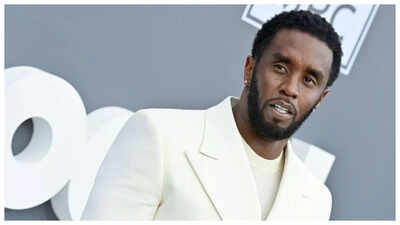
(Picture Courtesy: Facebook)
As jury selection begins today in the federal sex trafficking and racketeering trial of music mogul Sean "Diddy" Combs, all eyes are on the U.S. District Court for the Southern District of New York, where the first steps of a high-stakes legal process are unfolding.
Combs, who has pleaded not guilty to charges that include sex trafficking, transporting individuals across state lines for prostitution, and directing a criminal enterprise, will face a jury whose selection process reflects the gravity and complexity of the case.
What is jury selection?In the United States federal judicial system, jury selection—known formally as voir dire—is the initial phase of a criminal trial where attorneys for both the prosecution and defence, along with the presiding judge, question prospective jurors to assess their impartiality.
The goal: to seat a fair and unbiased jury of 12 individuals, plus alternates, who will deliberate and decide the defendant’s fate.
The process is especially critical in a case involving a public figure like Combs, where pretrial publicity, personal biases, or even industry ties could influence objectivity.
The jury poolPotential jurors are selected at random from voter registration rolls, driving records, or other government databases.
For a case of this scale, hundreds of summonses are often issued. Prospective jurors fill out extensive questionnaires assessing their background, media consumption, familiarity with the case, and opinions on issues such as sexual assault, celebrity, and law enforcement.
Given the widespread media coverage and the salacious nature of the charges—including accusations of coercion, forced labour, and international trafficking—screening for bias becomes especially intricate.
The questioning phaseOnce the pool is narrowed down, selected candidates are brought into court for questioning by Judge Arun Subramanian and attorneys from both sides. This can include inquiries into their views on the #MeToo movement, past experiences with abuse or assault, or their perception of celebrity culture.
Both sides are permitted a limited number of peremptory challenges, which allow them to dismiss jurors without providing a reason, as well as challenges for cause, which require justification, such as evidence of bias or conflict of interest.
In Combs’ case, his defence team, led by veteran criminal lawyer Marc Agnifilo, is expected to challenge potential jurors who show strong reactions to the now-viral CNN video showing Combs assaulting singer Cassie Ventura in 2016. Prosecutors, meanwhile, may seek to exclude individuals with deep admiration for Combs' music career or ties to the entertainment industry.
High-profile challengesJury selection in celebrity cases is often shaped by broader cultural undercurrents.
In the trials of Harvey Weinstein and Ghislaine Maxwell, jurors were asked not only about their media consumption but also their understanding of terms like “grooming” and “coercive control.” A similar pattern is likely here, with prosecutors arguing that Combs used his power in the entertainment industry to manipulate, intimidate, and exploit.
Legal experts say such trials often hinge as much on jury dynamics as on legal strategy.
“In a case like this, where celebrity and abuse intersect, both sides are effectively casting a play,” said legal analyst Cheryl Bader. “They’re not just choosing jurors; they’re choosing a narrative lens.”
Timeline aheadJury selection is expected to last up to a week, with opening statements scheduled for May 12. The trial, which could run for several weeks, is set to feature testimony from multiple alleged victims, as well as Combs’ former employees and associates.
While the burden of proof lies with the prosecution, the jury will have the final say on whether the man once hailed as a hip-hop pioneer ran what the government now calls a “decades-long criminal enterprise.”
As Judge Subramanian oversees the seating of the jury, what begins today is not merely procedural—it’s the foundation of justice in one of the most closely watched celebrity trials in years.

 1 month ago
64
1 month ago
64




























 English (US)
English (US)